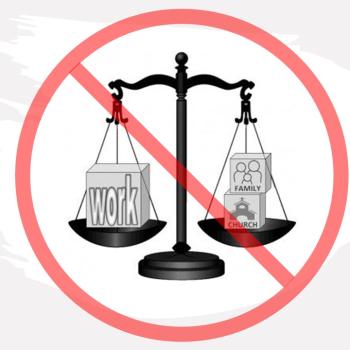 The Consequence of Our Two-Faced Lives.
The Consequence of Our Two-Faced Lives.
Former peanut executive Stewart Parnell was recently sentenced to 28 years in prison for knowingly shipping bad peanuts that created a salmonella outbreak, killing nine people and making hundreds sick.
Volkswagen CEO Martin Winterkorn resigned this week after the EPA discovered that the carmaker installed a so-called “defeat device” in 11 million diesel vehicles in order to fool emissions testers.
Turing Pharmaceuticals CEO Martin Shkreli finally bowed to public pressure and decided to reverse the price increase of the life-saving anti-malaria drug Daraprim. Shkreli had hiked the price of the drug from $13.50 to $750, over 5,000%.
We want to demonize these people, but they are just normal folks, like you and me. The 35-year-old former hedge-fund manager Shkreli believes that “Daraprim is still underpriced, relative to its peers.” Winterkorn’s Volkswagen was just doing what they thought they had to do to remain competitive. Parnell was reportedly extremely worried of losing a major customer so he shipped bad peanuts. By the account of family and friends, Parnell was a nice guy. His daughter described him as a doting grandfather who always put others before himself.
Situational Ethics
In other words, these stories should highlight how it is far too easy to get caught up in the anxieties and thrills of leading a company in a competitive market. I was in business for years, one of the top sales executives in the Fortune 100 corporation that employed me. In those years, it became a game – my peers and I wanted to exceed sales expectations and we constantly felt the heat when sales were down. When push comes to shove, it’s easy to say that all is fair in the war of capitalism.
As stressful situations arise, we can make decisions that we would not normally make.
I don’t know the faith of these three men, but I do know my faith. I came to faith during my time at that company. But godly decision-making took a long time to develop. And I know why.
For far too long, we have not been encouraged to think about our work as a calling from God. We have been told implicitly (if not explicitly) that the “spiritual” part of life revolves around church, prayer, Bible reading, and serving people less fortunate than us. When it comes to our work-life, we are told to use our workplaces as a means to invite folks to church and to be a witness to Jesus by not being crude or to show care for our fellow workers.
But deep down, we have come to believe that the church world is different from the real world. Different rules apply in my work – hard decisions are made not only every day but often every hour. “It’s fast-paced and intense out here, pastor, so while church life is all sweetness and light, I deal with sour and dark on a daily basis.”
Some of us like it that way. If we compartmentalize our Christian life from our work life, then we can make the kinds of decisions that we feel need to be made in our jobs.
But that leads us down the road with Parnell, Winterkorn, and Shkreli.
Calling is Bigger than Ethics
If we see our “sacred” life as that which is contained in the world of church, Bible studies, prayer groups, and Christian softball leagues, while our “real” life is the time in the office, wrangling over deals, playing the office politics, and climbing the corporate ladder, we are setting ourselves up for failure on par with these guys. When stressful situations arise, we will not be ready. We may simply make decisions based on cost-risk analysis, what seems practical at that moment, and what will help the bottom-line.
If, however, we see our work as a calling from God, then our ethics are already determined for us. If we see our work as the means by which we actually are participating with God in his mission in the world, then we already know what we are supposed to do.
God is asking us to participate in his mission of redeeming every aspect of this fallen world. He has gifted us with skills and educations and experiences to work in real, tangible ways to bring about change for the common good. He has placed us in the mission field of our work to obey the great command he gave us to love the Lord and to love our neighbors.
If, on a day-to-day basis (and yes, on a moment-to-moment basis), we are determined to participate with God in bringing his kingdom to bear on our work environment, on the way we conduct business with our suppliers and customers, with how we treat those above us and below us in the business hierarchy, on influencing the business toward becoming more proximate to righteousness and justice, then our situational ethics are already determined.
If my Christian calling from God is my career, then that sets the table for making all my ethical decisions. But if my career is something separate from my Christian calling to be a good church-goer, a doting father, a Bible study teacher, and a member of the choir, then I am living a life that is not integrated. It is a life that truly and literally lacks integrity. It is… dis-integrated.
We need to (re)integrate our Christian faith with every aspect of our lives, especially our vocations.
Image by Fabrizio Calicchia. Used with permission. Sourced via Flickr.













